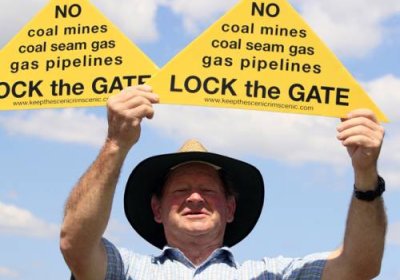The Australian Greens have called on the federal government to end fossil fuel subsidies for big mining companies.
The Greens say costings by the Parliamentary Budget Office show that Labor’s spending on fossil fuel subsidies for mining companies will cost the public more than $13 billion over the next four years.
Included in these subsidies are diesel fuel tax rebates, accelerated depreciation on assets and accelerated depreciation on exploration.
Environment
The Coal Terminal Action Group released this statement on April 10.
***
Community groups in the Hunter Valley have responded with relief and celebration to the announcement of a two-year delay to Newcastle’s proposed fourth coal terminal (T4).
“There will be celebration and relief today in suburbs including Mayfield, Tighes Hill and Carrington where residents already live with particle pollution well above the national standard,” said Coal Terminal Action Group spokesperson Annika Dean.
About 70 people attended a community forum in Adelaide on March 27 to learn more about plans for unconventional gas extraction in South Australia.
At the third national congress of the Left Party (Parti de Gauche) held in Bordeaux from March 22 to 24, France’s newest and fastest-growing socialist group seemed to come of age.
Only four years old, the Left Party was born after its leading figure, Jean-Luc Melenchon, long-time leader of left currents in the Socialist Party (SP), abandoned it after the tendencies in the SP opposing neoliberal austerity mustered only 19% support at its 2008 congress.
A fortnight after the NSW Liberal government announced policy changes to coal seam gas (CSG) mining in NSW to ban drilling within two kilometres of some residential areas, about 400 local residents met at Springwood Civic Centre on March 24 for the “Coal seam gas — it still stinks” public forum.
Speakers explained the continuing threat to the environment, residents’ health and the world heritage values of this area posed by the CSG industry.
For anyone who knows the science, it’s settled — fossil fuels need to be banished fast from our energy mix. But how do we achieve it? Can we rely on renewable sources such as wind and solar? Or must humanity turn to nuclear power?
That’s a controversy that has bubbled away for years among people who all accept the dangers of global warming. Now, from the energy sector in China, there’s hard new evidence bearing on this debate.
The experience in China shows that as a way of quickly replacing greenhouse-polluting fuels, renewable energy wins against nuclear, hands down.
At the most highly contaminated US nuclear site, redundancy notices went out on March 18 to nearly 250 workers. More than 2500 others were notified they faced temporary layoffs of several weeks.
About 9000 people work at Washington State's Hanford Nuclear Reservation, which produced plutonium for US nuclear weapons during World War II and the Cold War.
Contractors are cleaning up the highly contaminated site and removing millions of gallons of radioactive waste for treatment at a plant now under construction.
Do oil spills make good economic sense? A witness called by Canadian firm Enbridge Inc— which wants approval to build a $6.5 billion pipeline linking Alberta’s tar sands with the Pacific coast — told a recent hearing in British Columbia that the answer is yes.
This letter was read out to 300 people who rallied in Campbelltown, NSW on March 17 to protest against coal seam gas (CSG) expansion in the area.
***
Good afternoon all. My name is Debbi Orr and I live in the Tara Estates — a gas field in Queensland.
Since CSG invaded our area, all of my six children have become sick. Headaches, nosebleeds, burning itchy eyes are a regular — sometimes daily — occurrence in our house.
There has long been support across Australia for sustainable job creation. With new environmental technologies being created at a rapid pace, green jobs have been created in installation and retail — but what about sustainable manufacturing?
There is now a push for sustainable jobs that consider the future of communities where local jobs are reliant on coal, such as Morwell in Victoria’s Latrobe Valley.
When coal seam gas company Metgasco announced on March 13 it had suspended its operations in northern NSW after a long community campaign against it, it was just the latest in a series of setbacks for the CSG industry.
It followed the suspension of an AGL project in Campbelltown in western Sydney after community protests. Another company, Arrow Energy, has withdrawn from NSW and wants to transfer its licence to Dart Energy so it can focus on expanding in central Queensland.
Wong-goo-tt-oo elder Wilfred Hicks explains why the Burrup Peninsula is important and why it should be saved with World Heritage listing.
- Previous page
- Page 204
- Next page









